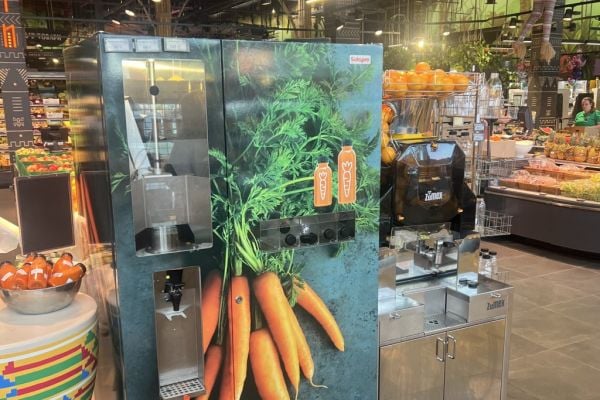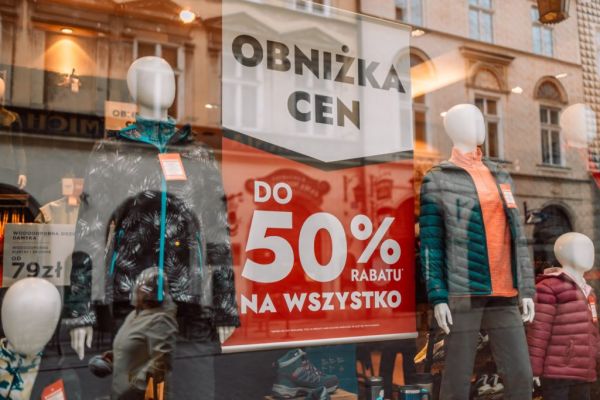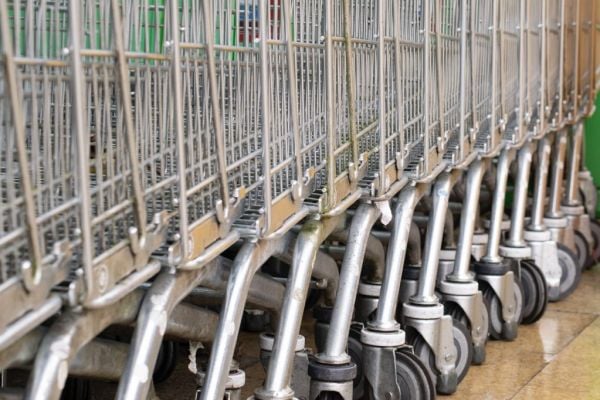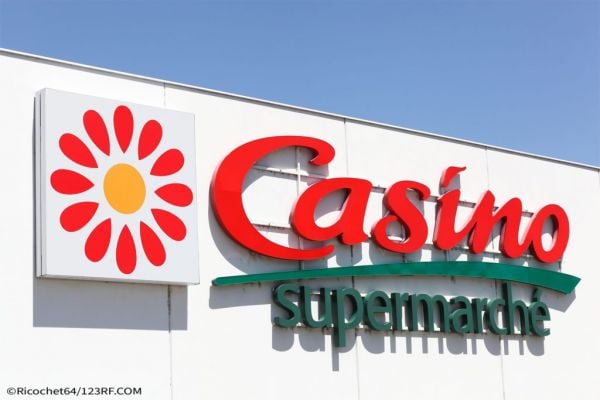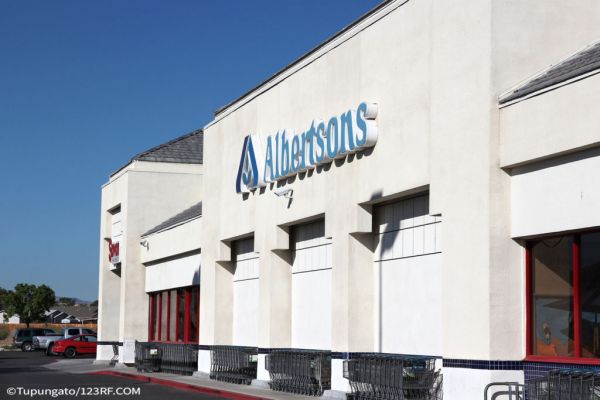Christel Delberghe, the new director general at EuroCommerce, believes that European retail is more than capable of navigating these uncertain times, provided the support is there. ESM met her. This article first appeared in ESM May/June 2022.
The term ‘baptism of fire’ is perhaps overused, but for Christel Delberghe, the new director general of EuroCommerce, the first few months in the job have been anything but run-of-the-mill.
Having first joined EuroCommerce, which represents the retail and wholesale sector in Europe, in 2001, last October saw her take over from longstanding director general Christian Verschueren at the head of the organisation, at a time when it seemed things were returning to normal following the pandemic. Since then, Europe has been faced with a further COVID wave, supply chain challenges, sky-high inflation and, most concerningly of all, the return of war to its borders.
“One lesson from the past few years is that predicting the future, or expecting some form of normality, is going to be very difficult,” Delberghe tells ESM when we meet her in Rome. “As a sector, we were all looking towards the post-COVID period, and are now faced with another crisis. People said that the war in Ukraine could have been expected, but who would really prepare for a war in Europe? It really highlights the difficulty in predicting the future.”
Read More: EuroCommerce Calls For Action To Address 'Fragmentation of the Single Market' By CPG Firms
The State Of Retail
Not that 2022 was going to be short of challenges, of course. In March, EuroCommerce published a report alongside McKinsey, Navigating the market headwinds - The State of Grocery Retail 2022, which featured interviews with 60 European grocery CEOs as well as a survey of more than 12,000 consumers across nine European countries.
That report, which was put together prior to Russia’s invasion, highlighted some of the obstacles facing European retailers – including a drop in sales as the pandemic receded, price pressures and competition from a maturing online market – as well as inflation, the latter which is likely to be exacerbated by the situation in Ukraine.
“Facing these challenges requires a lot of agility, as well as crisis management,” says Delberghe. “But it also requires businesses to think about longer-term trends. What are the long-term priorities, and how can we focus on them? There’s a huge transformation taking place in the retail model, which incorporates sustainability, skills, and the digital sphere.”
Priorities also have the potential to shift quite rapidly in what is a constantly changing environment.
“We have to adapt as a sector,” she says. “Last year, labour shortages and a lack of skilled workers came quite far down the priority list for retailers. This year, it’s one of the top priorities. We need to work as a sector to make the industry more attractive – we are competing with other sectors in which adoption of technology comes more naturally, for example.”
Support For Ukraine
As a group that counts national associations from 28 European countries among its members, and is affiliated with some of the bloc’s biggest retailers and wholesalers, EuroCommerce is also well-positioned to collaborate on broader social issues. In March, the group launched a new webpage, www.commerceforukraine.eu, which tracks the humanitarian efforts being made by retailers to support those affected by the conflict in Ukraine, and seeks to inspire further action.
“We asked our members, what’s our value proposition? How can we help?,” Delberghe says of the Commerce For Ukraine initiative. “We realised very quickly that the larger organisations already have connections with the Red Cross, UNHCR and other humanitarian organisations. So, we brought those initiatives together on one webpage.”
EuroCommerce enables members to exchange information on the Ukraine situation, while also connecting with accredited NGOs that can provide support on-the-ground. “Many of our members are coordinating donations, and some are setting up platforms to facilitate the recruitment of refugees,” says Delberghe. “There is a lot of ‘behind the scenes’ activity.
“Plus, the webpage provides visibility on how to handle the supply chain crisis – with a war in Ukraine and sanctions against Russia, what does this mean for supply of certain goods? We can use this to create a dialogue with Commission representatives.”
European Engagement
As an organisation, EuroCommerce has found its voice in recent years, engaging with the European Commission on everything from the EU Farm to Fork Strategy to the proposed Data Act. During the pandemic in particular, the group played a leading role in underlining the importance of retail as an essential service or eco-system.
“In the past two years, we’ve seen an unprecedented level of regulatory activity by the European Commission, as the 2019-24 Commission began to unfold its strategy,” Delberghe says. “But one wonders if they really realise what some of these decisions mean.
“For example, we recently saw major packages of legislative proposals on the Green Deal, which will require a lot of involvement. But at the same time, companies are struggling to pay their bills – energy prices are going up. So, while there is a longer-term plan in mind, the short-term cost of compliance is a real issue.”
At the same time, there are a number of legacy issues which continue to persist, with hoped-for resolutions a while in coming. Recently, EuroCommerce held a seminar on the issue of Territorial Supply Constraints (TSCs) – limitations imposed by suppliers that hinder retailers from sourcing branded goods freely in countries of their choice, a situation that goes against the interests of the Single Market. While there has been some progress – AB InBev recently received a €200 million fine for ‘abusing its position’ on the Belgian beer market – tackling TSCs at all levels is proving a tough nut to crack.
“It’s a real frustration,” says Delberghe. “Territorial supply restrictions have been identified as an issue for more than ten years and the Commission estimates that they cost Europe’s consumers at least €14 billion annually. We’ve seen some progress in terms of enforcement. Next to the AB InBev case, we also have a case involving Mondelēz, which is being looked at from an antitrust perspective and an abuse of dominance. Both are being looked at in parallel. This is real progress.
“At the same time, enforcement takes a lot of time, so we hope that whatever comes out of that investigation will give a clear signal that territorial supply constraints should be done away with.”
Tackling Protectionism
With regard to preserving the integrity of the Single Market, Delberghe is also concerned about a “growing protectionism” that is permeating some parts of Europe.
“COVID has clearly demonstrated that if we want to create food sovereignty, we need to properly function as a Single Market,” she says. “The war in Ukraine is another reason why we need to maintain that security of supply.
“As a Union, if we want to make sure that we have enough to feed the population, we need to act as a bloc, and not just as sets of individual countries.”
Add into the mix the growing presence of digitalisation – “I don’t think regulators really understand how digital is transforming the business model,” says Delberghe – and it’s clear that the road ahead for European retail is far from smooth.
But as the old adage puts it, out of every crisis comes an opportunity, and while she may be new to her role, Delberghe is confident that by working together, both EuroCommerce and the wider industry can face up to the obstacles in its path.
“Every day, this role pushes me to think, about the challenges facing our members and our industry and how we can best support them through our work with the EU institutions in Brussels,” she says.
© 2022 European Supermarket Magazine – your source for the latest Retail news. Article by Stephen Wynne-Jones. Click subscribe to sign up to ESM: European Supermarket Magazine.

